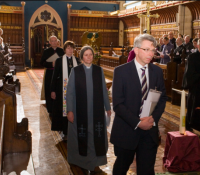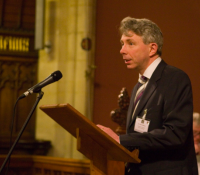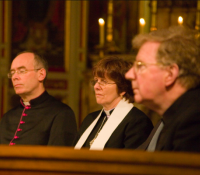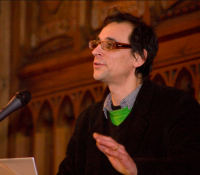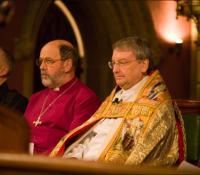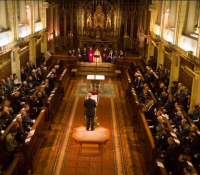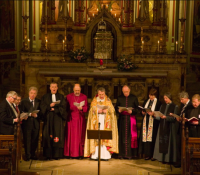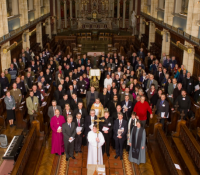
Receptive Ecumenism and Ecclesial Learning:
Learning to Be Church Together
The essential principle behind Receptive Ecumenism is that the primary ecumenical responsibility is to ask not “What do the other traditions first need to learn from us?” but “What do we need to learn from them?” The assumption is that if all were asking this question seriously and acting upon it then all would be moving in ways that would both deepen our authentic respective identities and draw us into more intimate relationship.
The third international conference was hold at Ushaw College, Durham in January 2009, taking the theme of ‘Receptive Ecumenism and Ecclesial Learning: Learning to Be Church Together’, being a joint conference in conjunction with Durham University (11th-15th January, 2009). The Department of Theology and Religion at Durham University, in collaboration with Ushaw College, the Diocese of Hexham and Newcastle, and a number of other sponsoring bodies (including the Diocese of Durham and St. John’s College, Durham), hosted an international research colloquium on the theme Catholic Learning and Receptive Ecumenism to mark the award of an honorary Doctorate of Divinity to Cardinal Walter Kasper, President of the Pontifical Council for Promoting Christian Unity.
The colloquium brought together 150 theologians, ecumenists and ecclesiastics from across the traditions (and a great many of them of international standing) in order to explore a fresh way of conceiving the ecumenical task fitted for the contemporary situation – referred to as Receptive Ecumenism.
The January 2006 project tested this strategy in relation to the host tradition, Catholicism, hence the full title: Catholic Learning and Receptive Ecumenism. The event was designed in the main as an international academic conference drawing together theologians, ecumenists and ecclesiastics of international standing to pursue fresh thinking. In the light of some significant conversations during and after the colloquium with participants primarily involved in local ecumenism, it very quickly became apparent that there was both a real need and great potential for a subsequent, much more practically-focussed and fully collaborative research project exploring the relevance of the thinking behind Receptive Ecumenism to life “on the ground” in the local churches of the north-east, testing and extending the thinking behind Receptive Ecumenism in very practical ways that could act as a model of good practice to be offered to both the academic and ecclesial communities well beyond the north-east of England. This second phase led to the establishment of the current project: Receptive Ecumenism and the Local Church.
The Program of the event can be accessed here.
Abstracts for the Parrallel Paper/Workshops can be accessed here.
Recording of the plenary papers can be purchased from Agape Ministries.
More information on the Conference Official Webpage
